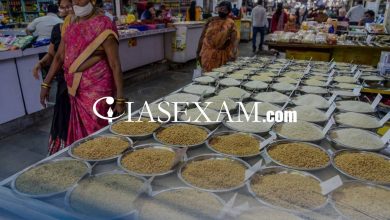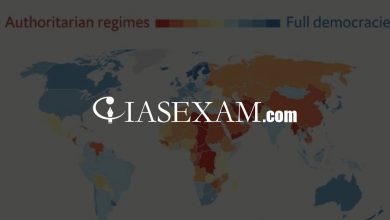News of the Day
COVID-19 could fuel more conflict, poverty, starvation: UN
Top UN officials have warned that the COVID-19 pandemic has aggravated discrimination and other human rights violations that can fuel conflict, and its indirect consequences are dwarfing the impact of the virus itself in the world’s most fragile countries.
Mr. Lowcock warned the council that the indirect economic and health effects from the crisis in fragile countries “will be higher poverty, lower life expectancy, more starvation, less education and more child death”.
Key Highlights
- But the full extent isn’t known because testing in these fragile countries is very low and in some places many people are reluctant to seek help, perhaps fearing being quarantined or fearing they won’t get useful medical treatment, he said.
- “The better news is that it seems possible that the fatality rate from COVID-19 may be lower in these fragile countries than initially feared,” he said, but the indirect impact is greater.
- Ms. DiCarlo said Secretary-General Antonio Guterres’ March 23 call for a global ceasefire to deliver life-saving aid during the pandemic had an encouraging initial response, with temporary truces announced from Colombia and Ukraine to the Philippines and Cameroon.
- As for growing human rights challenges during the pandemic, Ms. DiCarlo pointed to increased discrimination including in access to health services, surging violence against women particularly in the home during lockdowns, and “growing limitations being placed on the media, civic space and freedom of expression”.
- During the pandemic, UN peacekeeping chief Jean-Pierre Lacroix said the UN’s far-flung missions, with over 100,000 personnel, “continued to prevent and respond to threats to civilians, which have unfortunately not decreased in the past six months despite the secretary-general’s global ceasefire call“.
- The humanitarian chief said another important impact is on health and education, because in the most fragile countries people are vulnerable to killer diseases like measles, malaria, tuberculosis and HIV/AIDs, and because infant mortality and the numbers of women losing their lives in childbirth are much higher than in better off countries.
- One example of the impact has been the disruption to vaccination campaigns in 45 countries facing humanitarian or refugee crises or high levels of vulnerability from other causes, Lowcock said, stressing that this could put “more than 80 million children under the age of one at risk of vaccine-preventable diseases”.
SOURCE: The Hindu





.png)



